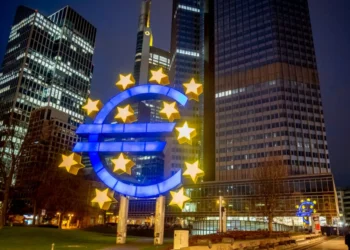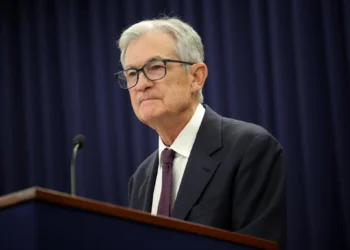WASHINGTON / BRUSSELS (Realist English). The European Union’s commitment to purchase $750 billion worth of American energy over the next three years — a cornerstone of the new US-EU trade agreement announced by President Donald Trump and European Commission President Ursula von der Leyen — is being met with deep skepticism from industry experts and economists, who call the figures “pie in the sky.”
Under the agreement, EU companies would buy $250 billion annually in US oil, natural gas, and nuclear technologies — a dramatic increase from current levels. In 2024, US fossil fuel exports to Europe totaled only $75 billion, far short of the new target. By contrast, Europe’s total energy imports were valued at approximately $435 billion.
Analysts questioned both the enforceability and feasibility of the deal, given that European energy procurement decisions are made by privately owned companies, not governments, and that the EU remains committed to decarbonization.
“Even if Europe wanted to import more US energy, it’s unclear how Brussels can compel companies to comply,” said Matt Smith, lead oil analyst at Kpler. “Companies answer to shareholders — they’re going to buy the cheapest and most reliable supply.”
The announcement, made Sunday during a joint appearance in Washington, was framed by Trump as a victory for US energy producers and a way to avoid a looming transatlantic tariff clash. Trump has repeatedly championed an era of “American energy dominance,” though US drilling growth has slowed since his return to the White House.
While shares in US energy companies initially surged, the rally lost steam as markets digested the lack of operational detail behind the $750bn figure. Anne-Sophie Corbeau, an analyst at Columbia University, said the plan contradicts both European affordability goals and Trump’s promise to lower energy prices.
“To hit $250bn annually, Europe would need to divert massive volumes from other suppliers while betting on high energy prices,” Corbeau said. “It simply doesn’t add up.”
Even so, US producers welcomed the political boost. The American Petroleum Institute said the deal would cement America’s role as a key energy supplier to Europe. Liquefied natural gas (LNG) exporters viewed it as a signal to accelerate project financing.
Venture Global, a US LNG company with several European supply contracts, announced it was moving ahead with a $15 billion facility in Louisiana, capable of producing 28 million metric tonnes per year — nearly half of Germany’s annual gas demand. “We applaud President Trump’s deal,” CEO Mike Sabel said, though he noted the project’s financing had been secured before the agreement.
Other LNG firms, including Cheniere Energy and NextDecade, also saw stock gains on Monday, though by market close the enthusiasm had tempered.
Some analysts drew comparisons with Trump’s failed 2020 trade deal with China, which promised an additional $200bn in US exports — a target Beijing never met. “That experience doesn’t inspire confidence,” said Kevin Book, managing director at ClearView Energy Partners in Washington.
Bill Farren-Price, head of gas research at the Oxford Institute for Energy Studies, was blunt: “It’s hard to see how the EU could quintuple its US energy imports while trying to pivot to renewables. Like it or not, in Europe the windmills are winning.”


















